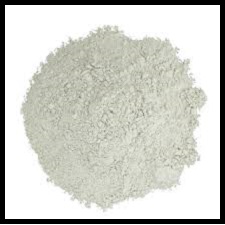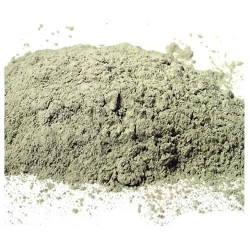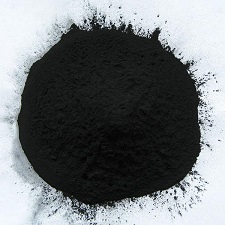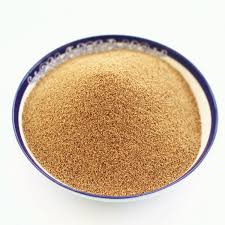Description
Bentonite Clay
Clays have been used for centuries as a method to help beautify the skin. They are available as a fine powder and are present in almost all traditional beauty regimens. They exfoliate, clean and invigorate the skin while improving blood circulation. Clay has the ability to absorb excess oils, dirt and harmful toxins from the skin. The addition of herbs add even greater benefit.
Cosmetic clays are made up of different mineral contents, and each clay type has a different effect on the skin. The high mineral content of clay rejuvenates the skin while the clay exfoliates and stimulates blood circulation to the skin. Regular use of clay facials will remove dead skin cells, improve circulation to the skin, remove debris from the pores and bring about a smooth healthy glow. Each clay has the ability to absorb toxins from the skin but they differ in their level of absorption.
Clays are commonly used in facials, but they can also be added to body powders and soaps. Cosmetic clays come in beautiful hues including pink, deep red, light sage green, yellow, white, gray and blue. This array of colors makes them a popular choice for use as a natural colorant in soap, lotions, creams and bath salts.
Clays that are suitable for dry, sensitive or normal skin are Pink Kaolin, White Kaolin, Yellow Kaolin, and Rose. Clays that are suitable for oily skin are Bentonite, French Green, Green Illite, Red Kaolin, Blue Montmorillonite, Red Montmorillonite, Moroccan Red, and Multani Mitti (Indian Fullers Earth). Clays that are suitable for all skin types are Dead Sea, Rhassoul and Sea clays.
When purchasing clays, be sure to purchase clays that are cosmetic or medicinal grade. Technical grade clays often have dangerously high content levels of lead and should be avoided.
The following facial mask recipe is easy to make and can be customized to suit your specific skin type and personal preferences.
Using Clay in Soap
The addition of clay gives soap a creamy dense lather that makes it ideal for shaving. Bentonite and French Green clay are often used for this purpose. Clay is also useful for adding natural earth tone colors to soap.Use it at a rate of 1 T per pound of soap.
Clay Facial Mask Recipe
- 2-3 oz. Cosmetic Clay
- 1-2 oz. Powdered Herbs
- Water or Hydrosol
- 1-2 drops Essential Oil added at the time of application (optional)
Choose a cosmetic clay and herbs that are suitable for your skin type.
Mix the powdered ingredients to make 4 oz. of dry clay facial and store in a 4 oz. jar.
Clay facial masks should not be stored pre-mixed with the wetting agent. To use, add approximately 1/2 oz. of the dry clay facial herb blend to a small bowl and mix enough warm water or hydrosol to make a paste. Add a drop or 2 of essential oil if desired.
Apply to the skin in a gentle circular motion, and leave it to dry for about 15-20 minutes. Wash off with warm water. If the skin feels tight, a light oil such as camelina can be applied afterwards. Experiment with other wetting agents. Strawberry puree will act like an alpha-hydroxy. Cucumber puree cools the skin, yogurt cools and softens the skin, and milk removes dead skin cells and softens the skin.
The above information is for general research purposes only and is not a representation or warranty of any kind. This material is not intended to diagnose, treat, cure or prevent any disease. The user of this material is solely responsible for determining fitness for any particular use; requesting and reviewing the applicable Material Safety Data Sheet; and compliance with all applicable laws and regulations. Terms and conditions apply





What others are saying
There are no contributions yet.